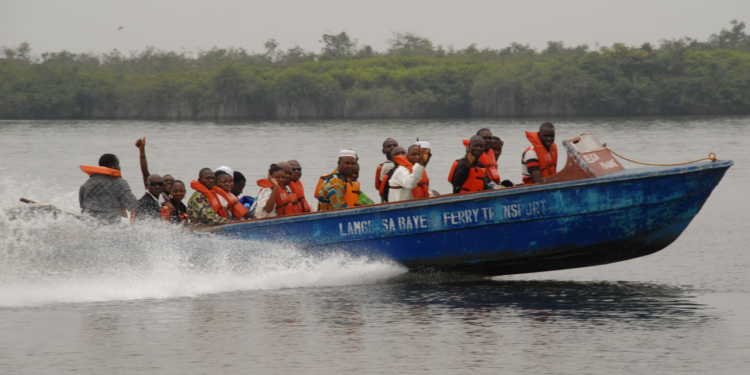With the latest boat disaster in Taraba state in which about 100 lives were feared dead, we are worried that our inland waterways are becoming like insecurity in the country. Life is so cheap to the point that no one seems to be bothered.
In the tranquility of Nigeria’s rivers, a silent epidemic rages claiming the lives of countless citizens who seek only to reach their destinations safely.
Recent tragedies have presented the urgency for a comprehensive response to the recurring boat accidents that are plaguing the nation. In our opinion, the situation has assumed a dangerous dimension generating, in the process, grave concern that demands immediate attention.
The heartbreaking incident that unfolded in Gbajibo, Mokwa LGA of Niger State, recently, serves as a stark reminder of the gravity of this issue. Over 100 passengers, including individuals on their way to their farms, found themselves in a life-threatening situation as their boat capsized. The outcome was devastating, with 24 precious lives lost.
This catastrophe came hot on the heels of another tragedy in Adamawa, where 15 out of 23 passengers met a similar fate in Njuwa Lake, Yola South LGA.
These events, along with previous boat accidents, should serve as a collective wake-up call to the nation.
President Bola Tinubu’s call for a thorough and comprehensive investigation into the root causes of these preventable disasters is commendable.
READ ALSO: Taraba Boat Mishap: 15 Bodies Recovered, Others Missing
The directive to involve various government agencies, including law enforcement, maritime safety, and transportation authorities, reflects a commitment to understanding and mitigating this crisis.
We also recall the year 2021 was marred by a series of boat mishaps, particularly in the northern region of the country. Kebbi State, in particular, witnessed a harrowing boat accident in June, where over 100 individuals tragically lost their lives. Most of the victims were traders, on their way to a market in Kebbi State when the boat capsized.
Prior to this devastating incident, Kebbi State had already suffered the loss of over 20 lives in the Yauri Riverboat mishap. These incidents underscores the pressing need for heightened vigilance and improved safety protocols in the region’s water transport.
The tragedy extended its grasp to other states as well, with a heartbreaking incident in Kano where 29 lives were lost, including young schoolchildren traveling to a religious event.
Just weeks before, seven young girls drowned in neighboring Jigawa state when a boat overturned, further highlighting the vulnerability of passengers in the absence of stringent safety measures.
Niger State also witnessed its share of sorrow as seven lives, including children, were claimed in Zhigiri village due to a boat capsizing in December.
The dawn of the New Year brought no respite, as eight more individuals lost their lives in a boat accident in Bayelsa State while traveling from Ogboinbiri to Amassoma.
Ondo State did not escape this tragic trend, with the Nigeria Security and Civil Defence Corps reporting the loss of four lives and injuries to 19 others in a boat accident in October.
In the considered opinion of this newspaper, it is safe to surmise that we have a boat mishap epidemic in Nigeria.
In Kebbi in the last two years, the deaths recorded in boat accidents are almost the number of people that have died as a result of insecurity, yet tackling the menace of boat mishaps seems not to be on the front burner.
What emerges from this distressing pattern is a tragedy one that disproportionately affects those from rural areas and the economically disadvantaged.
It is a stark reflection of the disparities in the enforcement of safety regulations between air, rail, and water travel.
It is instructive to note that boat accidents in Nigeria are often caused by overloading, adverse weather conditions, poor maintenance, and the absence of essential safety regulations.
Sadly,many passengers do not wear life jackets because they are not provided, and there is no enforcement of this critical safety measure. Boat owners, driven by greed, overload vessels with passengers and goods, imperiling everyone on board.
Corruption further exacerbates the problem, as some boat operators prioritise profits over lives, cramming their vessels with excessive cargo that makes them susceptible to avoidable accidents during storms.
In light of these grim realities, we urgently call on federal government agencies, notably the Nigeria Inland Waterways Authority (NIWA), to enforce and uphold strict waterway laws.
It is incumbent upon them to ensure the safety of riverine travel by implementing safety measures and regulating the industry to prevent future mishaps.
The lives of our citizens should never be compromised for economic gain. We must prioritize the safety and well-being of all those who rely on Nigeria’s waterways for their livelihoods and daily transit. Only through resolute action can we put an end to this boat mishap incidents and ensure that our waterways are truly safe for all.



